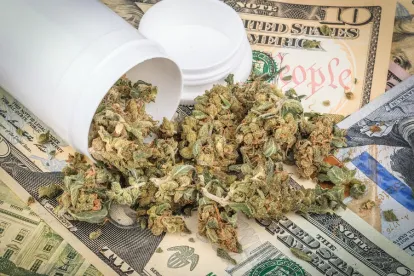Public Risks Posed by Unbanked and Cash-Heavy Industry Deemed Insufficient to Outweigh Federal Law Concerns
As we just blogged, the New York State Department of Financial Services (“NYDFS”) has published guidance to “clarify the regulatory landscape and encourage” New York, state-chartered banks and credit unions to “offer banking services” to “marijuana related businesses licensed by New York state[,]” thereby identifying New York as a state friendly to financial services for marijuana-related businesses. In stark contrast, Ed Leary, Commissioner of the Utah Department of Financial Institutions (“UDFI”), recently articulated the polar opposite position, thereby exemplifying the increasingly bewildering patchwork quilt of approaches to banking and anti-money laundering (“AML”) policy in regards to state-licensed marijuana businesses.
In a presentation on August 17, 2018 to members of the National Association of Industrial Banks and the Utah Association of Financial Services, Commissioner Leary advised that UDFI will not ask any financial institutions regulated by his department to provide banking or payment processing services to cannabis-related businesses. To the contrary, if any examination conducted by UDFI identifies evidence of cannabis-related banking activities, UDFI will cite the conduct as an apparent violation of federal law.
Not only are Commissioner Leary’s comments at odds with the recent NYDFS guidance, but they also took aim at a recent legislative initiative to require UDFI to license cannabis payment processors. HB 197, signed into law by Utah Governor Gary Herbert on March 23, 2018, legalizes cannabis-related medical and academic research in Utah and, in its original form, would have required UDFI to license cannabis payment processors to process electronic, non-cash payments between cannabis producers and qualified medical and academic research institutions. The cannabis payment processor provisions were not enacted into law by virtue of a coordinating clause in SB 130 (legalizing cannabidiol, or CBD), which provided that if HB 197 and SB 130 both passed, as they did, the cannabis payment processor provisions of HB 197 would not be enacted. Commissioner Leary is vexed by Utah legislators who want Utah and UDFI to solve the cannabis banking problem for the rest of the nation. Commissioner Leary did not reference the recent guidance by New York which encourages such financial services.
In Commissioner Leary’s view, state-chartered banks and licensed payment processors in Utah may not provide services to medical or recreational cannabis businesses unless and until (1) the federal government legalizes medical or recreational cannabis, and (2) federal regulators have had an opportunity to implement rules that will assure appropriate due diligence in connection with any marijuana-related banking activities. At present, the only federal agency to address the issue is the Financial Crimes Enforcement Network (“FinCEN”), which issued guidance in 2014 that attempted to describe a path for financial institutions regulated under the Bank Secrecy Act (“BSA”) to provide financial services to marijuana-related businesses compliant with state law, and to file appropriate Suspicious Activity Reports (“SARs”) regarding transactions involving such clients.
Echoing concerns articulated by the New York guidance, Commissioner Leary acknowledged that unbanked cannabis industry, which conducts business on a cash only basis, poses a serious public safety issue. He further observed that cash only businesses have problems with recordkeeping and tax compliance. But he was adamant that UDFI will not condone violations of federal law. He also expressed concern that if Utah gets into the business of banking the cannabis industry, it will jeopardize UDFI’s reputation as a legitimate regulatory agency.
In concluding his remarks, Commissioner Leary said “he was not aware of any Utah financial institutions interested servicing the cannabis industry, but if he was wrong, to let him know.” He also stated that if Utah’s Medical Marijuana Initiative (Proposition 2) passes in November, it will not change his position.



 />i
/>i

